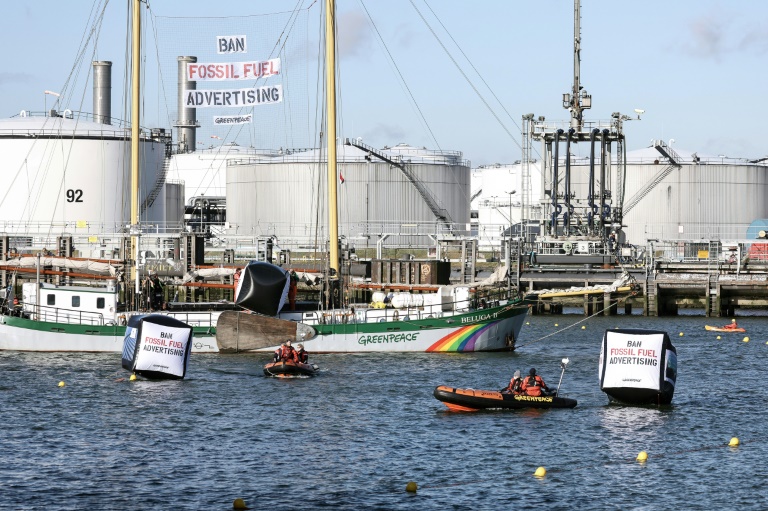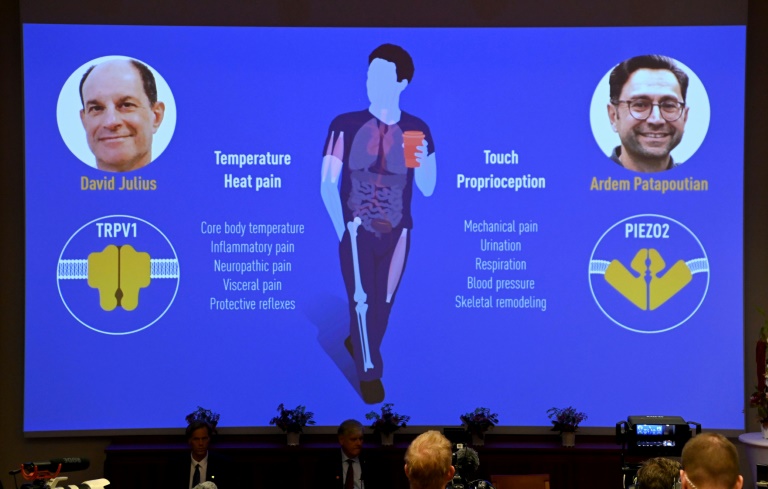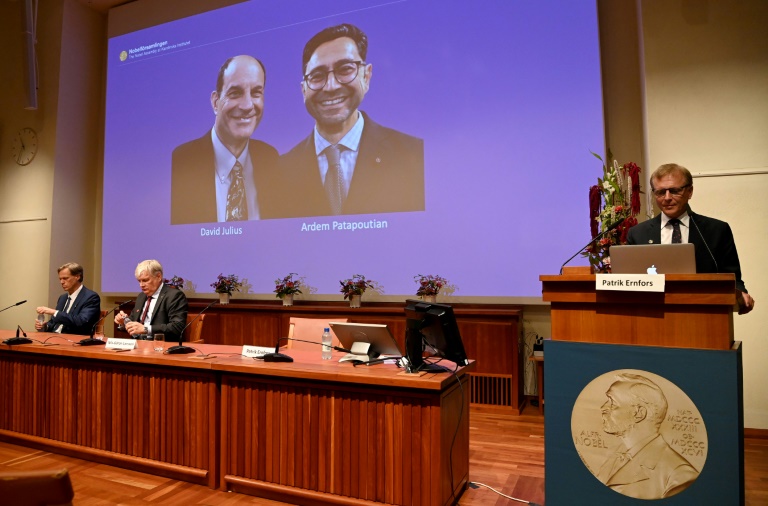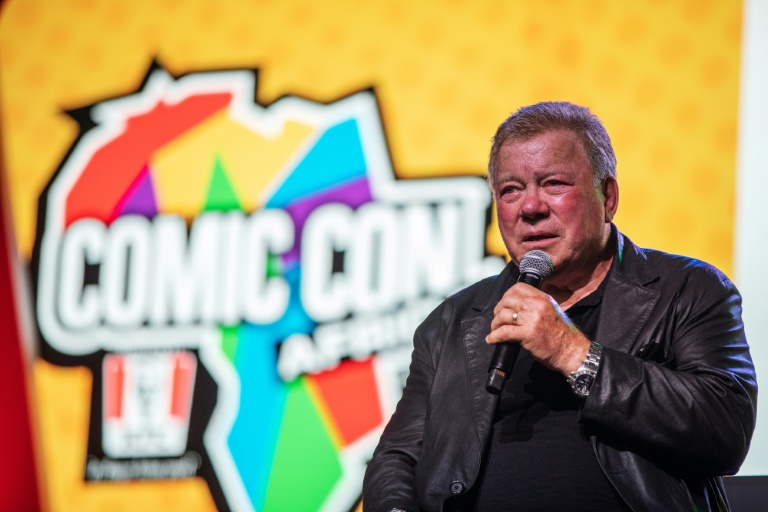What signals spark in our bodies when we experience the fiery heat of a chili pepper or feel the sudden pressure of a tap on the shoulder?
While scientists had long ago figured out the mechanisms for sight and smell, the way in which touch, heat and cold trigger a response in the nervous system remained a mystery until research by this year’s Nobel Medicine Prize winners.
Thanks to their work we understand how temperature and touch are converted into electrical impulses sent through the body — a crucial mechanism for perceiving and surviving the world around us.
It has also opened up the possibility of new treatments for a range of diseases.
– Too hot to handle –
Biochemist and molecular biologist David Julius has used a range of natural substances to examine how the sensations of pain and temperature are transmitted to the brain.
Working at his laboratory at the University of California, San Francisco, Julius has looked at toxins from tarantulas and the chemicals producing the nose-tingling burn of horseradish and wasabi.
But it was his research in the 1990s to solve the “riddle” of what exactly happens when the body is exposed to capsaicin, the molecule that produces the hot sensation caused when we eat or touch chili peppers, that was singled out by the Nobel committee.
His team created a database of millions of DNA fragments from genes within sensory neurons, which were known to react to pain, heat and touch.
They then located the gene that made cells specifically sensitive to capsaicin.
Further investigation revealed that a type of protein on the outer tip of sensory nerves, which they called the TRPV1 ion channel, responds both to the “heat” in chilies and to high temperatures.
When activated this receptor “sends the electrical signal from the periphery –let’s say, your lips or your eye, wherever you feel the hot chili pepper — and it takes the signal to the spinal cord,” said Julius in a 2019 interview with Scientific American.
The signal is then relayed by different neurons up to the brain, “where you perceive it as being something noxious and painful” he said.
Julius and his colleagues have since identified another receptor that reacts to cold, as well as the “wasabi receptor”, which responds both to the pungency of the Japanese condiment and is also involved in pain linked to inflammation.
– Prodding –
Working around the same time at Scripps Research in La Jolla, California, Ardem Patapoutian was searching for specific receptors activated by mechanical stimuli such as pressure and touch.
He identified a type of cell that emitted a measurable electric signal whenever an individual cell was poked with a micropipette.
“We literally poked the cell while recording its electrical current,” he told BrainFacts in a 2020 interview.
He then launched an arduous process of elimination, looking for a gene linked to the possible receptor.
To do this the researchers inactivated dozens of candidate genes one by one to see which one was responsible for the cell’s sensitivity to touch.
The team called the previously unknown “mechanosensitive ion channel” Piezo1, after the Greek word for pressure, and they have since identified a second receptor Piezo2.
Patapoutian said finding these receptors is like finding “a doorknob”, which could open up the understanding of pain or touch.
“So, the receptor is like the first entry point — it allows you to open the door and start investigating what’s in this room,” he told BrainFacts.
While there is still a lot to learn about these protein receptors, the discovery has “exploded this field of research”, Bertrand Coste, who conducted the studies with Patapoutian, told AFP.
– Painkillers? –
Coste said another crucial step is to find the receptors that detect the types of touch that cause pain, which would be “fantastic therapeutic targets” for chronic or inflammatory pain.
Pain itself plays an important role — from telling us when to pull away from something hot, to letting us know when we have suffered an injury.
Julius told the Scientific American that some early pharmaceutical research into using the receptors had produced unwelcome side effects, like decreasing people’s ability to tell when something is too hot.
But he said he hoped that identifying the specific mechanisms for these sensations would help lead to the development of painkillers that do not rely on opiods, which can have wide ranging effects on the body and lead to addiction.










